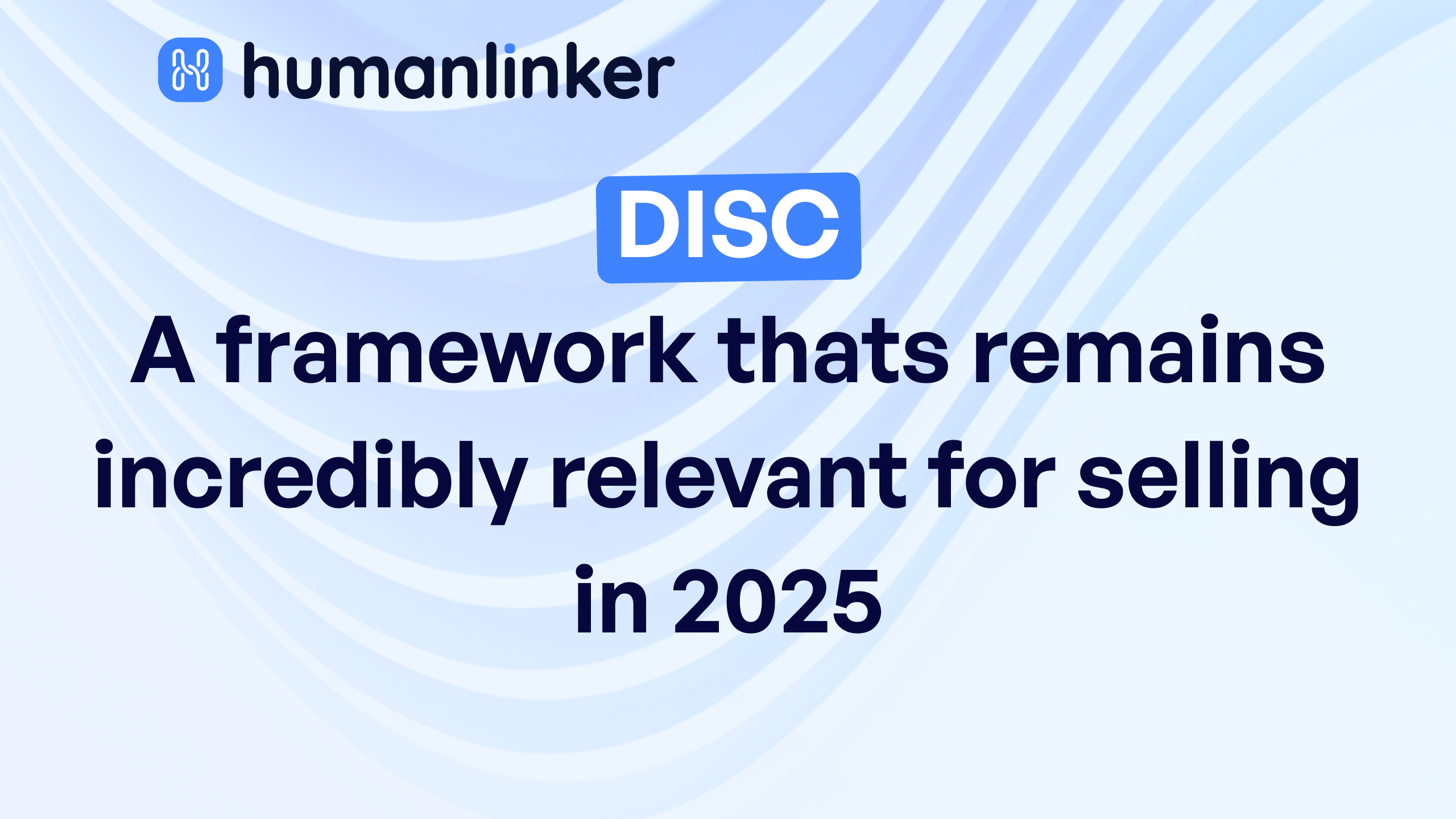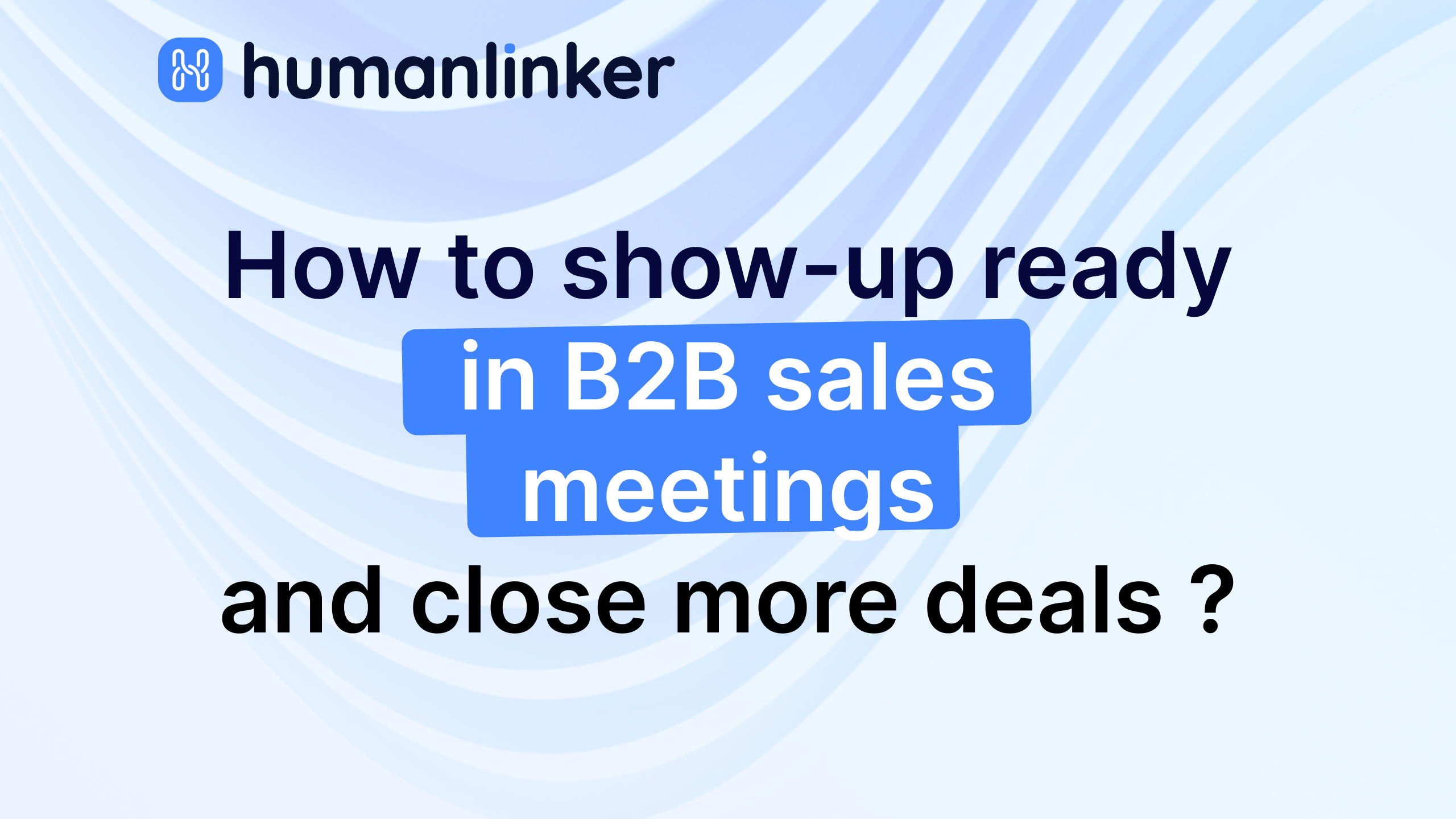Experts Insights on Consultative Sales: Quick explanation

A few months ago, we hosted an event focused on consultative sales that attracted over 400 attendees. We were lucky to have speakers with extensive experience in this area from companies like Datadog and Contentsquare leading the presentations.
The conference began with an overview of three main types of selling:
- product selling
- solution selling
- consultative selling
Throughout the conference, the speakers emphasised the importance of understanding these different selling types to position oneself and develop a sales strategy effectively.

Consultative Sales
Consultative sales focus on understanding the customer's needs and challenges and then offering solutions. It is a customer-centric approach that involves:
- Actively listening to the customer.
- Asking questions.
- Offering customised solutions that meet their specific requirements.
One of the principles of consultative sales is empathy. It requires salespeople to put themselves in the customer's shoes and understand their perspective to create a mutually beneficial relationship. This approach is efficient for selling complex or technical products, allowing the salesperson to demonstrate their expertise and provide personalised recommendations.
An essential aspect of consultative sales is the concept of value creation. Rather than simply trying to push a product or service onto the customer, the salesperson aims to create value by offering solutions that solve the customer's problems and help them achieve their goals. This value-based approach helps to build trust and establish long-term relationships with customers.
Consultative sales is a collaborative and personalised approach that involves actively listening to and understanding the customer and offering customised solutions that create value and solve their problems. It is a proactive and empathetic approach that helps build trust and long-term customer relationships.
Differences between product selling, solution selling, and consultative selling
📦 Product Selling: The Traditional Transaction
🗣️ "Sell the sizzle, not the steak."
- Focus: This approach zeros in on a specific product or service.
- Goal: Convince the customer of the product's merits based on its features and benefits.
- Nature: Often transactional. Once the sale is made, the focus shifts to the next potential customer.
- Associated Strategies: Often linked with product-led growth and growth hacking.
🔍 Solution Selling: The Customer-Centric Consultation
🗣️ "Don't sell products, solve problems."
- Focus: Understand the customer's pain points, needs, and challenges.
- Goal: Offer tailored solutions that cater to the identified needs rather than pushing a generic product.
- Nature: Deep dive into the customer's world, often requiring the salesperson to have intimate knowledge of the customer's industry.
- Associated Strategies: Tends towards transactional & volume sales but requires a more hands-on approach.
🤝 Consultative Selling: The Deep Dive Approach
As explained by Frédéric Kingue-Johnson, an expert in consultative selling:
- Focus: Delve deep into the intricacies of the customer's business.
- Goal: Understand the unique challenges faced by the customer and craft customized solutions.
- Nature: Requires a high degree of expertise and empathy. It's not just about understanding the product, but truly understanding the customer.
- Value Proposition: It's about creating lasting value. By understanding and addressing the core needs of the customer, consultative selling fosters long-term, win-win relationships.
In conclusion, while product selling might get you quick sales, consultative selling is the route to take if you're focused on building long-term value and relationships with your customers. It's not just about the sale; it's about the journey and the value created along the way.
"Customers don't want to be sold something, and they want to buy something. It's the same for us on a personal level. When we are in a shop, we don't want the salesman to jump on us and give us his sales pitch.”
We want an experience and have discovered the desire to buy.
Importance of understanding different types of selling
As a sales professional, it is important to understand the different selling approaches and how to apply them in different situations effectively. Each type of selling has its own set of advantages and disadvantages, and understanding the nuances of each approach can help you tailor your sales pitch to meet your customers' needs better.
For example, product selling is best suited for situations where the customer is familiar with the product and needs to be reminded of its features and benefits. Solution selling is more effective when the customer has specific needs or challenges that need to be addressed and requires the salesperson to understand the products and services available to the customer deeply. Consultative selling is a more collaborative approach that involves working with the customer to identify their needs and develop customised solutions that address those needs.
By understanding the different types of selling, you can choose the approach that best fits the situation and increase your chances of success. Whether you're selling a simple product or a complex solution, having a thorough understanding of the different types of selling can help you effectively communicate the value of your offering and build long-term relationships with your customers.

Buyer process in the context of consultative sales
- Identify the buyer's needs and challenges: The first step in the buying process is understanding the customer's needs and challenges. This involves actively listening to the customer, asking questions, and gathering as much information as possible about their business and requirements.
- Offer customised solutions: Once you clearly understand the customer's needs, the next step is to offer customised solutions that address those needs. This may involve recommending specific products or services or suggesting a tailored approach that meets the customer's requirements.
- Demonstrate value: It is important to articulate clearly the value of your offering to the customer. This may involve highlighting the benefits of your product or service or demonstrating how it can help the customer achieve their goals.
- Address objections: It is common for customers to have complaints or concerns about a product or service. Listening to these objections and addressing them promptly and effectively is essential.
- Close the sale: Once you have addressed the customer's needs and concerns, closing the deal is final. This may involve negotiating terms, finalizing the deal, or setting up a follow-up meeting to continue the conversation.
The value of consultative sales in building long-term, mutually beneficial relationships with customers
This approach is all about building long-term, mutually beneficial relationships with customers. By truly taking the time to understand the customer's needs and challenges and offering customised solutions that address those needs, the consultative salesperson can create value for the customer and establish a relationship based on trust and mutual respect.
This approach is efficient for selling complex or technical products, allowing the salesperson to demonstrate their expertise and provide personalised recommendations. It is also an effective way to build relationships with key accounts and establish a loyal customer base.
In conclusion, the value of consultative sales lies in its ability to build long-term, mutually beneficial relationships with customers. By taking a customer-centric approach that involves actively listening to and understanding the customer and offering customised solutions that create value and solve their problems, the consultative salesperson can establish trust and a strong foundation for long-term success.
Seven critical skills are essential for success in consultative sales:
- Active listenin: Paying close attention to the customer and fully understanding their needs and challenges.
- Questioning: Asking the right questions is key to understanding the customer's needs and uncovering new opportunities.
- Empathy: The ability to put oneself in the customer's shoes and understand their perspective is essential in building trust and establishing a mutually beneficial relationship.
- Problem-solving: Consultative sales require identifying the customer's problems and developing customised solutions that address those needs.
- Value creation: Rather than simply trying to sell a product or service, the consultative salesperson aims to create value for the customer by solving their problems and helping them achieve their goals.
- Communication: Effective communication is crucial in consultative sales, as it allows the salesperson to articulate clearly the value of their offering and build trust with the customer.
- Relationship building: Building long-term, mutually beneficial relationships with customers is at the heart of consultative sales and requires establishing trust and fostering a sense of collaboration.
These seven skills are essential for success in consultative sales and are the foundation for building solid and long-term relationships with customers. Practice will help you develop and improve your skills.
You can learn what works best by practising different sales techniques and approaches and refining your skills. This can help you become more confident and effective in your sales interactions. The more you practice, the more natural and automatic your sales pitch and techniques will become. This can help you deliver your pitch smoothly and effectively, even under pressure or in high-stress situations.
If you want more information and content on the subject, the replay can be found here: https://app.getcontrast.io/register/soft-selling-morning-la-vente-consultative

AI in B2B sales: the top trends to improve conversion and customer retention




Find out in 30 minutes how Humanlinker can help you achieve your goals.




